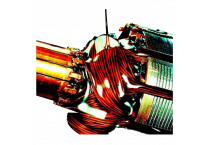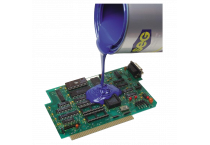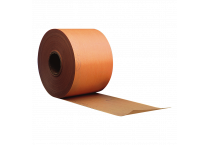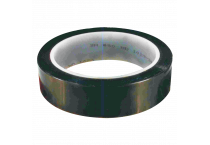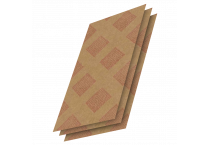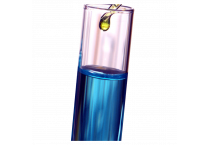-
- Impregnation method
- Alkyd lacquer - modified, single component, WE203 for insulation F class system 155C
- Air dry lacquers - anti-flame - protective and for finish G141, G142, G144T, G145
- Alkyd lacquer - modified G159, G159T
- Epoxide-alkyd lacquer - modified - E521, E521T, E521ATX
- E524TS lacquer - H class - UL E104619(N) certificate
- Polyester nonimpregnated lacquer P721, polymerization in drier
-
- Epoxide resins - impregnation methods
- Polyurethane resins - impregnation methods
- Two component resin U4612 + D84-15 - polymerization in an environmental temperature
- Two component resin U4760 + D72- polymerization in an environmental temperature
- Two component resin U4720 + D71- polymerization in an environmental temperature
- Two component resin with insert DIAPOL 508 + C500,- polymerization in an room temperature
- Two component resin with insert DIAPOL 509FG + C500,- polymerization in an room temperature
- Two component resin without filler JBR19.4 + D19.4 - polymerization in an environmental temperature
- Two component resin with insert E519C + D69,- polymerization in an room temperature
- Two component resin with insert E520C + D88,- polymerization in an environmental temperature
- Two component resin with load E819CA + D91,- polymerization in an room temperature
We offer a wide range of flexible insulating materials, manufactured in temperature classes from B 130°C to H 180°C. These materials are characterized by very good dielectric properties and are supplied in rolls or sheets. There is also the possibility of cutting them or providing ready-made slot insulation. The main applications of flexible insulating materials are transformers and electric motors.
Insulating materials can also be supplied in the form of tapes. Such electrical insulating tapes, used in the production of electrical and electronic components, should have appropriate electrical and mechanical properties and meet the required technological characteristics. Behind a simple roll of self-adhesive tape lie complex material science problems, sophisticated technologies, and production processes.
Self-adhesive electrical tapes are used for:
- insulation;
- protection;
- marking;
- fastening.
The properties of insulating tapes are determined by the type and thickness of the tape backing, insulation resistance, dielectric strength of the backing, and the tape's aging resistance. An important factor in selecting insulating tape is considering the possibility of electrolytic corrosion of the conductor as a result of its chemical interaction with tape components in the presence of electric potential, moisture, and other environmental factors. Electrolytic corrosion can lead to conductor breakage or dielectric breakdown of enamel insulation in thin wires, e.g., in a transformer coil winding. To reduce the likelihood of corrosion, the sulfur and chloride content in the tape material should be minimized.
Many manufacturers use tapes for colorful marking of their products or as an identification material. Here it is important that the tape does not fade, has good adhesive properties, and is suitable for marking. Finally, tapes are used to secure components and wires. In this case, the most frequently considered parameters are: tear resistance, elongation, and adhesive properties.
Impregnating varnishes in DACPOL's offer
We also offer impregnating varnishes in classes B 130, F 155, and H 180°C. The main applications of varnishes are the impregnation of motor and transformer windings, carried out by casting, dipping, vacuum method, or drip method.
We offer a wide range of flexible insulating materials, manufactured in temperature classes from B 130°C to H 180°C. These materials are characterized by very good dielectric properties and are supplied in rolls or sheets. There is also the possibility of cutting them or providing ready-made slot insulation. The main applications of flexible insulating materials are transformers and electric motors.
Insulating materials can also be supplied in the form of tapes. Such electrical insulating tapes, used in the production of electrical and electronic components, should have appropriate electrical and mechanical properties and meet the required technological characteristics. Behind a simple roll of self-adhesive tape lie complex material science problems, sophisticated technologies, and production processes.
Our offer also includes polyurethane and epoxy resins - two-component. Resin polymerization can take place at room temperature or in an oven at elevated temperature.
Coolant Vanchem products
Additionally, our offer also includes specialized cooling fluids COOLANT -10, COOLANT -45, and COOLANT -55. These products are formulated from ethylene glycol, deionized water, and special inhibitors, making them ideal as a heat transfer medium in liquid-cooled inverters, such as the PowerFlex 7000. The offered Vanchem coolants meet the latest standards, providing not only effective corrosion protection but also maintaining optimal thermal conductivity.
Our company offers comprehensive insulating materials, varnishes, and resins, which are available in many technical variants. Products include solutions for insulation class B and insulation class F, as well as materials used in insulation systems of class H.
They work perfectly in devices where reliability and durability are crucial. The offered materials are used in transformers, motors, and other demanding constructions. Thanks to a wide selection, solutions can be adapted for light and medium-duty operation. Our products are distinguished by a favorable price-to-quality ratio, ensuring safe and long-lasting operation of devices.





